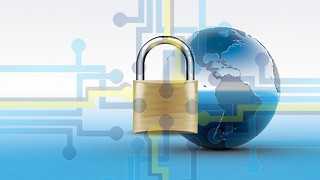Europe’s big green opportunity
Naomi O’Leary talks to Bo Diczfalusy, speaker at the EU’s Sustainable Energy Week, about why Europe’s great green gamble will pay dividends
Energy historian John Perlin sees the history of civilization as one long struggle over resources. Ask him about any contemporary issue, and he’ll tell you it all happened before. "3000 years ago the Pharaoh came to Lebanon where all the trees grew and demanded to have his timber," the professor explains. "The prince laughed at him and said, ‘It is you who need my timber, I don’t need anything that you have.’ This is the situation Europe is in with Russia and natural gas. What you are dependent on can always be stopped."
Perlin has a point. The interruption of natural gas supplies to 18 European countries in January 2009 due to a spat between Russia and the Ukraine was a chilly wakeup call to the reality of energy dependence. "According to all the forecasts there are, this dependence will increase," says Bo Diczfalusy, head of the International Energy Agency’s (IEA) sustainable energy directorate. "If we don’t do anything, more and more energy has to be imported from not the most stable political regions. This issue of security of supply is a political driver towards finding renewable solutions."
Diczfalusy can already envision a future of renewable energy for Europe. "When you and I speak ten or twenty years from now the European energy system will look entirely different," he says. "Renewables will form a substantial part of it."
Diczfalusy was a speaker at the EU Sustainable Energy Week 2010, which took place in Brussels from March 22th-26th. Despite what might be expected given the outcome of Copenhagen, he reports that spirits at the event were high. "It was exciting to hear the optimism," he says. "A year ago the main policy message was green growth or green technology as a means to achieve Copenhagen. Now it’s talked about as a means to bring about a meaningful economic recovery."
So far, Europe has had a head start in the renewables industry. In 2008, the world heralded China’s symbolic entry onto the world stage with the Beijing Olympics. In the background, German company Odersun was contracted to make the solar cells for the roofs of the Olympic Park. In 2009, Obama’s stimulus package aimed to kick-start the home economy. But the lion’s share of the total sum allocated for wind power projects was whisked away by Spanish company Iberdola. A slightly smaller slice of the pie went to Horizon Wind Energy, owned by Portugal’s EDP Renováveis.
Likewise, Italy’s Enel Green Power was granted over 61 million USD for its Nevada-based geothermal plants. For the moment at least, European renewables are ahead of the game. "Of course there is an obvious risk for Europe that they will be bypassed in the coming years," says Diczfalusy. "In terms of volumes, China and the United States are impressive. But Europe is still the world leader in green technology."
Though eurosceptics tend to cite cacophonous disunity as the EU’s main weakness, Diczfalusy sees such ‘artistic differences’ as Europe’s strength: "Different parts of Europe have been champions in different sections. Denmark in wind energy, Spain in solar energy, Sweden in biomass," he explains. "This allowed a number of successful examples to grow and compete, rather than the centre of power trying to be a champion at everything. My hope is that these kinds of championships can be integrated."
Business ears have pricked at the prospect of a green solution to get out of the red. This March, the formation of the ‘Friends of the Supergrid’ was announced as "a global opportunity for European companies to export sustainable energy technology." This is a group of ten industry leaders who have pooled together their expertise and plan to turn up the pressure for the regulation required for a pan-European energy grid based on renewables.
Siemens is one of them. The problem to be addressed for the Supergrid to work, explains Siemens’ Alfons Benzinger, is not a technological challenge, but one of cross-national integration. "At the moment it wouldn’t be possible to bring the offshore energy produced in the UK to Germany," he explains. "The systems don’t fit together. The problem we have to solve is to harmonise it. But from the technological side it’s not a problem. We already have the technology to make it happen."
Siemens is also a founding member of German-lead Desertec, which has its headquarters in Berlin. Desertec, founded in 2008, hopes to harness the solar energy of the Sahara with wind power in a vast international grid for Europe, the Middle East and North Africa. Benzinger thinks Desertec and the Supergrid can be complimentary initiatives: "In the summer for example, you get higher solar energy but less wind," he says, "they could work very well together: one in the north and one in the south."
Diczfalusy is optimistic about what sustainable energy could mean for Europe. Renewable energy, he says, could be the way for Europe to keep up a strong presence on the world stage: "If not a superpower, a strong power," he says. "It’s a promising avenue for keeping Europe as an important economic region of the world. We will certainly not be able to compete in mass production, unlike China and India. But the renewable energies market will need a lot of technology skill and good innovation systems; but also the cultural will, the consciousness of the consumers, the people and the politicians. This is Europe’s chance."
John Perlin has read it all before on the pages of history: "Caesar thought that the forests of Central Europe were inexhaustible. We know today that that’s not so. The Americans and the English thought that the forests of North America were inexhaustible, and we learned that they were not also. The mirage of inexhaustibility is the story of civilisation: the only solution is to develop renewable energy that has no end". Perhaps this time round, technology can provide a different ending to the story.
 News / ‘Out of the Ordinary’ festival takes over Cambridge 26 August 2025
News / ‘Out of the Ordinary’ festival takes over Cambridge 26 August 2025 News / Government pulls £277M in funding for Cambridge sewage works relocation25 August 2025
News / Government pulls £277M in funding for Cambridge sewage works relocation25 August 2025 News / Tompkins Table 2025: Trinity widens gap on Christ’s19 August 2025
News / Tompkins Table 2025: Trinity widens gap on Christ’s19 August 2025 Comment / Who could possibly want more exams?25 August 2025
Comment / Who could possibly want more exams?25 August 2025 News / News in Brief: Brain breakthroughs, bouldering, and the ‘broligarchy’24 August 2025
News / News in Brief: Brain breakthroughs, bouldering, and the ‘broligarchy’24 August 2025








